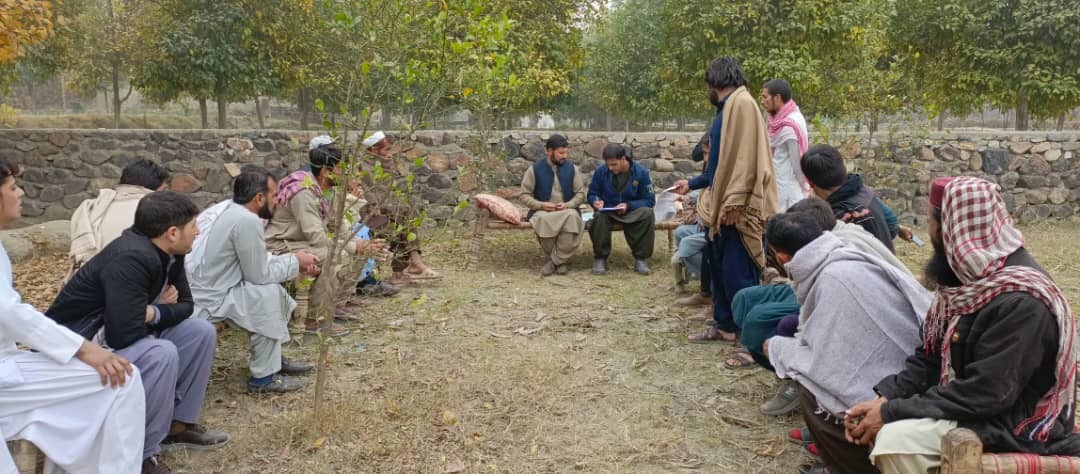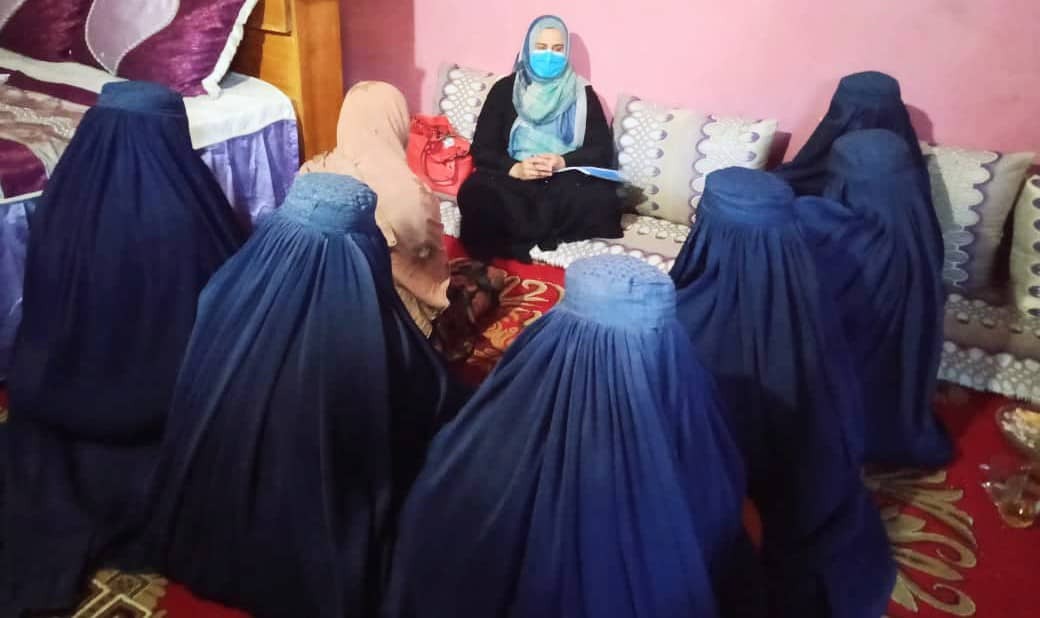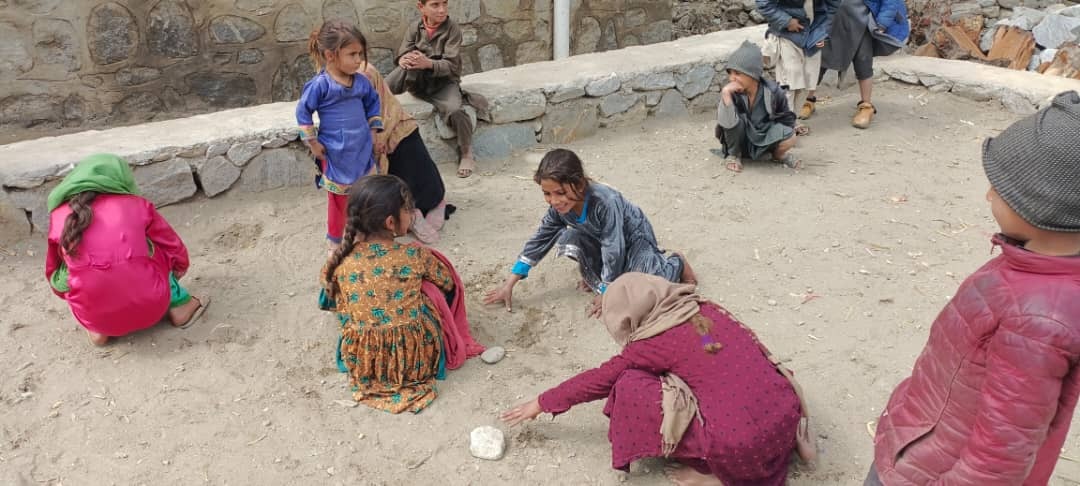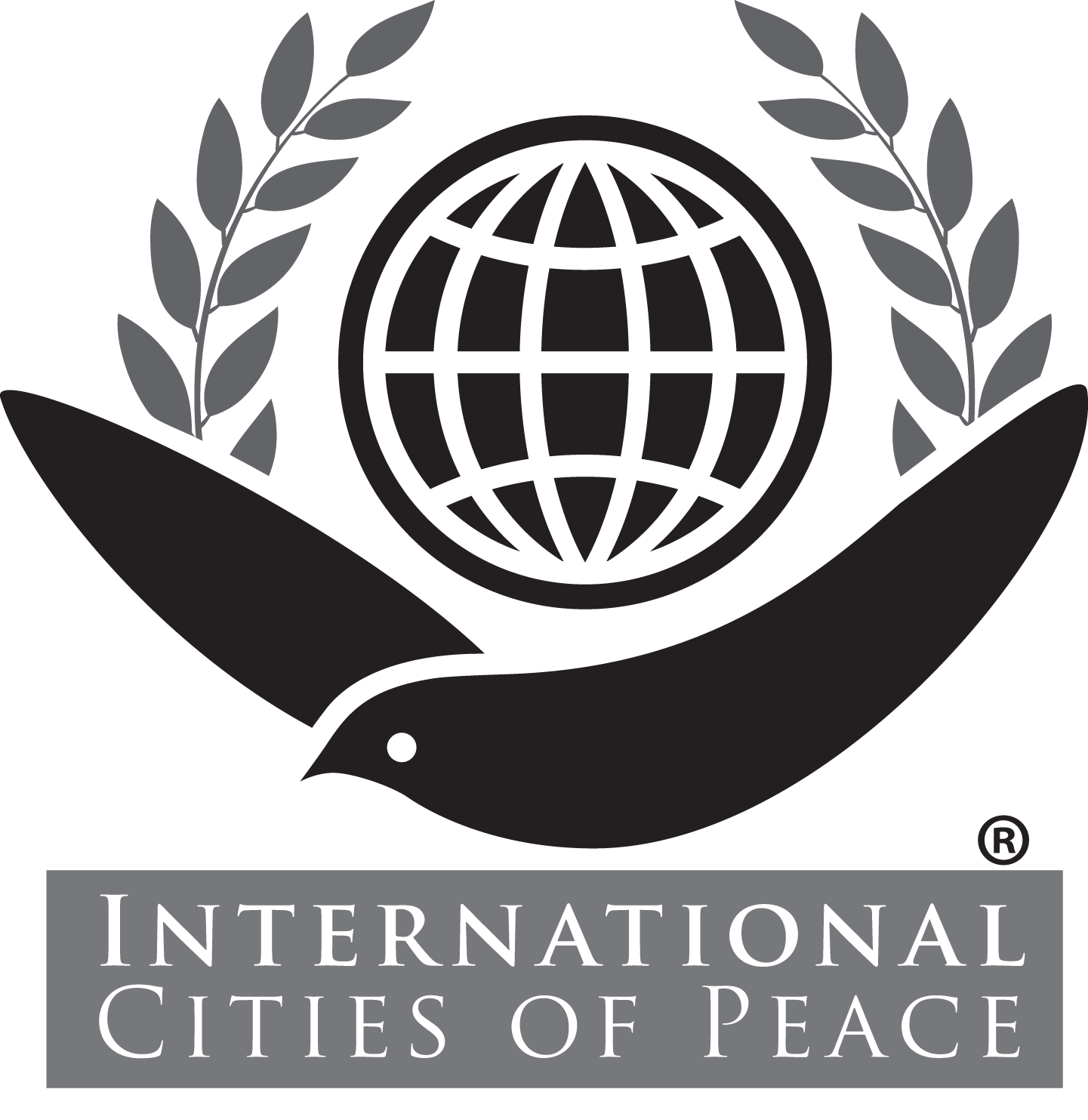Community State/Province Country
Asadabad, Kunar Province, Afghanistan
Community Photo

Full Name of Contact
Safia Safi
Contact Email
director.aresdo@gmail.com
Title of Project
“Empower Kunar: Building Futures through Education and Economic Opportunity”
One to Two Sentence Program Vision
To create a resilient and inclusive community in Kunar Province where every
individual, regardless of gender or background, has equal opportunities for
safety, prosperity, and a high quality of life.
Descriptions of Challenges
1. Taliban Restrictions: The imposition of Taliban restrictions severely limits the
rights and opportunities of women and children, including access to education
and employment, perpetuating cycles of poverty and marginalization.
2. Educational Barriers: The denial of education to girls not only deprives them
of fundamental rights but also undermines the potential for societal
development and progress, as education is a key driver of empowerment and
socio-economic advancement.
3. Unemployment: The prevalence of Taliban members in public organizations
exacerbates unemployment among educated youth, as qualified individuals may
face discrimination or exclusion from employment opportunities.
4. Economic Hardships: Unemployed women and youth face financial crises due
to limited job prospects and economic instability, further compounded by
Taliban restrictions on women’s participation in the workforce.
Longer Project Description
1. Education Access: Ensure access to quality education for all children, particularly girls, by advocating for the removal of barriers and providing resources for training in community.
– Objective:
1. Arrange trainings and seminars to 90 woman (in 3 batches) in Community centers within the next year through targeted outreach and awareness campaigns.
2. Facilitate access to vocational skills training for target women beneficiaries.
a. Train targeted women within the grant period in Marawara, Daangam and Sarkani district.
3. Develop a sustainable model for empowering women through entrepreneurship.
a. Provide equipment and tools that local organizations can continue to use.
a. Build the capacity of partner organizations to run similar programs in future.2. Economic Empowerment: Empower unemployed women and youth through vocational training, job placement programs, and entrepreneurship opportunities to break the cycle of poverty.- Objective:
1. 1: Provide vocational training to 90(in 3 batches) unemployed women and youth, focusing on skills that are in demand in the local job market.
2. Develop entrepreneurial mindset and business skills among target women.
a. Provide basic entrepreneurship training in areas like business planning, marketing and finance.
3. Create market linkages for women’s products and enterprises.
a. Facilitate interaction between women entrepreneurs and potential buyers.
b. Organize events to enable women to sell their products.
4. Improve the economic conditions of beneficiary women.
a. Increase average monthly incomes of targeted women.
b. Provide livelihood options for targeted women through skills and jobs.3. Gender Equality Promotion: Advocate for gender equality and challenge discriminatory practices that limit women’s participation in education and the workforce.
– Objective: Work with local leaders and community members to promote gender-sensitive policies and initiatives that support women’s rights and opportunities.4. Employment Opportunities: Create employment opportunities for educated youth by supporting initiatives that promote job creation in sectors less influenced by Taliban restrictions.
– Objective: Facilitate partnerships with private sector organizations to provide job opportunities and internships for recent graduates and unemployed youth.
By addressing the challenges faced by street children, unemployed women, and marginalized youth in Kunar Province through education, economic empowerment, and advocacy for gender equality, we aim to create a more resilient and prosperous community where everyone can thrive and contribute to collective well-being.The purpose of this grant is to provide skills training and entrepreneurship development for women in Marawara, Daangam and Sarkani districts of Kunar province in order to improve their economic empowerment and livelihoods.Specific goals and Objectives2:
The beneficiaries of our training program in the Marawara, Daangam and Sarkani district of Kunar Province will primarily be Afghan street children aged between 6 and 14 years old, who are currently deprived of formal education and face socioeconomic vulnerabilities. We aim to reach approximately 320(40 in each batch) children (160 Male and 160 Females) in khas kunar district prioritizing those who are most marginalized and at-risk within the community.1. Develop Basic Literacy Skills:
– Teach foundational reading skills such as letter recognition, phonemic awareness, and decoding.
– Develop basic writing skills, including handwriting, spelling, and sentence structure.
2. Enhance Comprehension Abilities:
– Improve reading comprehension through activities that encourage understanding and interpretation of texts.
– Foster critical thinking by discussing stories and asking questions about content, characters, and themes.
3. Promote Vocabulary Expansion:
– Introduce new vocabulary words and their meanings.
– Encourage the use of new words in speaking and writing activities.
4. Foster a Love for Reading:
– Provide a variety of reading materials that cater to different interests and reading levels.
– Create a positive and engaging reading environment that motivates children to read for pleasure.
5. Develop Writing Competence:
– Teach various writing genres, such as narratives, expository texts, and descriptive writing.
– Encourage creative writing and personal expression through journals, stories, and essays.
6. Improve Listening and Speaking Skills:
– Enhance oral communication skills through storytelling, discussions, and presentations.
– Develop listening skills by engaging in activities that require following instructions and understanding spoken language.
First Project Steps
The project aims to address two critical needs in Kunar Province: vocational training for unemployed women and youth, and educational support for marginalized Afghan street children. In the first phase, vocational training sessions will be organized in three batches, targeting 90 participants. These sessions will focus on imparting skills that align with local job market demands, thereby enhancing the employability of the participants. Concurrently, efforts will be directed towards providing educational support to 320 Afghan street children, aged 6 to 14, across Marawara, Daangam, and Sarkani districts. These children, facing socio-economic vulnerabilities and lacking access to formal education, will receive tailored training emphasizing basic literacy and essential life skills. By prioritizing the most marginalized and at-risk individuals within the community, this dual-pronged approach seeks to empower women, youth, and children alike, fostering economic opportunities and educational growth in Kunar Province.
Who the Project Impacts
The project impacts multiple stakeholders within the Kunar Province community:Unemployed Women and Youth: The vocational training provides them with valuable skills that align with local job market demands, enhancing their employability and economic prospects.Afghan Street Children: By offering educational support and basic literacy training to marginalized street children, the project uplifts them from socio-economic vulnerabilities, providing them with opportunities for personal development and future success.Families: Empowering unemployed women and youth and providing educational support to street children can have positive ripple effects on their families, contributing to improved household income, stability, and overall well-being.Local Communities: By addressing the needs of unemployed individuals and marginalized children, the project strengthens the fabric of local communities, fostering resilience, social cohesion, and sustainable development.Local Economy: By equipping unemployed women and youth with relevant skills, the project contributes to the local economy by increasing the pool of skilled workers and potentially attracting investment and job opportunities.Future Generations: Through education and skill-building initiatives, the project lays the foundation for a brighter future for the next generation, breaking the cycle of poverty and empowering them to become active contributors to society.Overall, the project’s impact extends beyond immediate beneficiaries to encompass broader social, economic, and community development goals within Kunar Province.
Follow-up Phase II Steps
For Phase II, let’s outline the subsequent steps for each component of the project:Vocational Training for Unemployed Women and Youth:
Feedback Collection: Gather feedback from participants of Phase I to assess the effectiveness of the training and identify areas for improvement.
Skill Enhancement Workshops: Organize workshops or advanced training sessions based on feedback and emerging trends in the job market.
Job Placement Assistance: Collaborate with local businesses and organizations to facilitate job placements for trained individuals.
Monitoring and Support: Implement a monitoring system to track the progress of participants post-training and provide ongoing support as needed.
Educational Support for Afghan Street Children:
Curriculum Expansion: Expand the curriculum to cover additional subjects or skills based on the evolving needs of the children and feedback from Phase I.
Parental Involvement Programs: Launch initiatives to involve parents and caregivers in their children’s education, providing resources and guidance on how to support learning at home.
Community Engagement Events: Organize community events or awareness campaigns to highlight the importance of education and garner support for the children’s educational journey.
Progress Evaluation: Conduct regular assessments to measure the academic progress and socio-emotional development of the children, adjusting teaching strategies accordingly.
Overall Project Management:
Resource Mobilization: Seek additional funding or resources to sustain and expand the project’s reach, potentially through grant applications, partnerships, or fundraising initiatives.
Capacity Building: Provide training and capacity-building opportunities for project staff and local partners to enhance their skills in program management, monitoring, and evaluation.
Documentation and Reporting: Maintain thorough documentation of project activities, achievements, and challenges for reporting purposes and knowledge sharing.
Community Empowerment Initiatives: Explore additional ways to empower the community, such as setting up community resource centers or establishing income-generating projects.
Long-Term Sustainability Planning: Develop a sustainability plan to ensure the continuation of project activities beyond the initial implementation phase, possibly through community ownership, institutional partnerships, or advocacy efforts.
By implementing these follow-up steps, the project can continue to make a meaningful impact on the lives of unemployed women, youth, and Afghan street children in Kunar Province, fostering economic empowerment and educational opportunities for vulnerable populations
How We Measure Success
Success for the project will be measured through a multifaceted approach that encompasses various indicators across its vocational training and educational support components. In assessing the vocational training for unemployed women and youth, success will be determined by the employment rate, income increase, participant satisfaction, and job retention rate. Concurrently, the educational support provided to Afghan street children will be evaluated based on improvements in literacy and numeracy skills, school enrollment rates, attendance levels, and parental involvement. The overall impact of the project will be gauged by its reach and coverage, community perception, sustainability, gender equity, and long-term outcomes such as improved household income and enhanced community resilience. Through systematic data collection, analysis, and stakeholder engagement, the project will measure its success in empowering vulnerable populations, fostering economic opportunities, and promoting educational access and equity in Kunar Province
Detailed PDF of Project
ARESDO-2-e2918e36cbd67fee033cc602379509a4
Community Photo 2

Community Photo 3

Description of Photos
Photo No: 01 In the heart of Sarkani district in Kunar Province, a dedicated staff member set amidst a group of attentive listeners, passionately delivering an awareness session on the importance of girls’ education and the challenges faced by street children due to lack of access to schooling. With sincerity and empathy, he engages his audience, his words resonating with urgency and hope for a brighter future.
Photo No: 02 In the heart of a Community gathering, a dedicated female staff sits among a circle of women, her posture attentive and welcoming as she impacts crucial awareness about the significance of girls education
Photo No:03 This photo is taken in street which shows that a lot parents did not sent their children to school.
They did not know the importance of education. Their parents consider that provide them some food is the only responsibility.
Final Comment
Thank you for entrusting our organization with the details of our projects. Your dedication to improving the lives of vulnerable populations in Kunar Province is commendable, and I’m honored to be a part of this initiative. If there’s anything else you need or any further support required, please don’t hesitate to reach out. Together, we can make a meaningful difference in our community.
NOTE: The individual that filled out this application has testified that he/she will NOT use copyrighted information or photos for which they do not have permission. If information or photos used here are copyrighted, please contact us and we will immediately delete the copyrighted material. ® International Cities of Peace is a registered trademark of Cities of Peace, Inc. Trademarks include Inspire Peace™ and City-to-City Collaboration Program™. Safety, Prosperity, and Quality of Life: the Consensus Values of Peace (cc) by J. Frederick Arment is licensed under Creative Commons BY 4.0. To view a copy of this license, visit https://creativecommons.org/licenses/by/4.0 |




